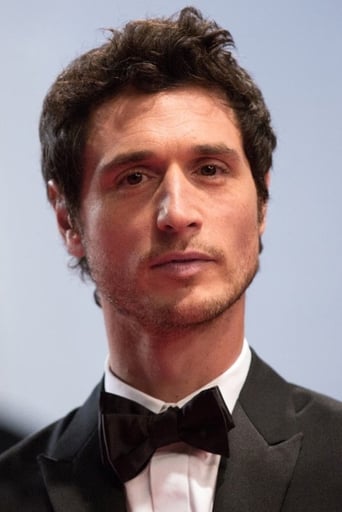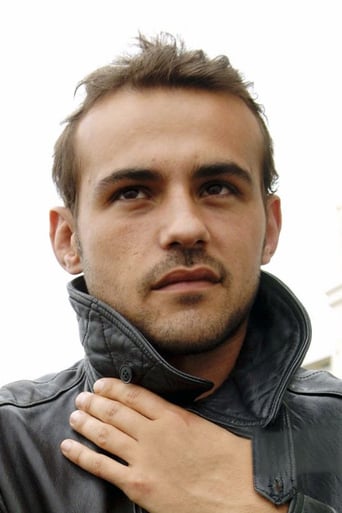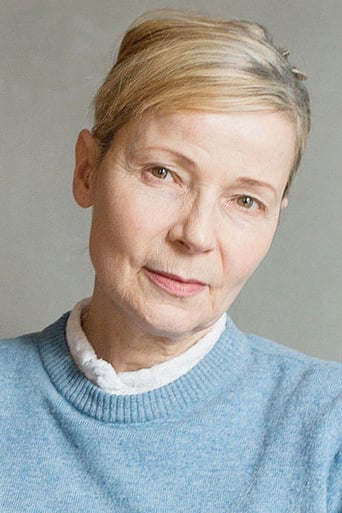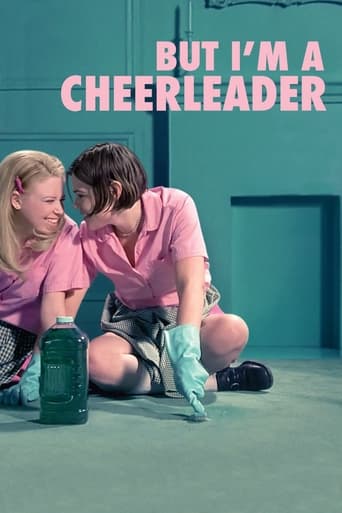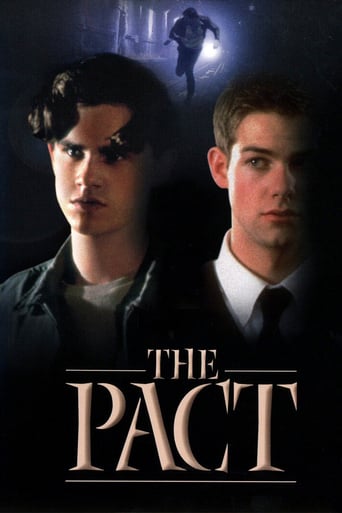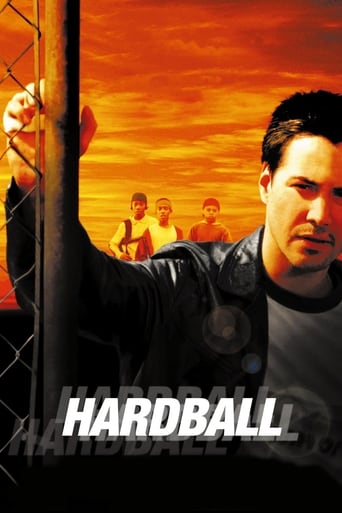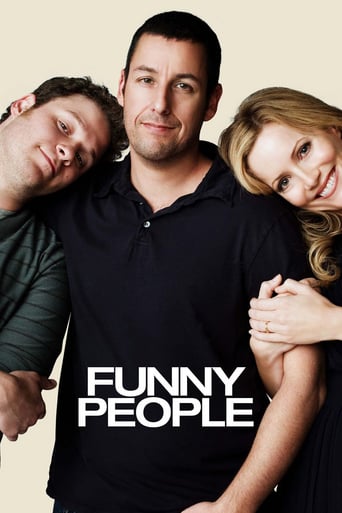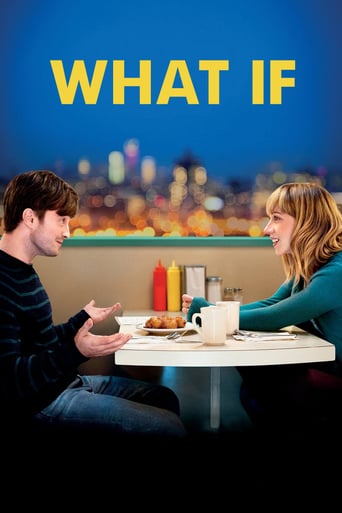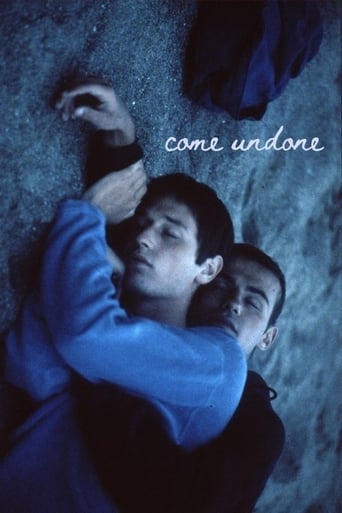
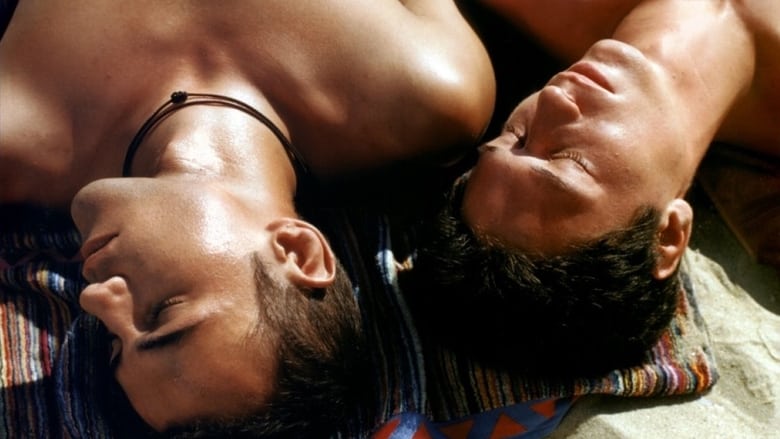
Come Undone (2000)
Story of two gorgeous, young French boys who begin a passionate relationship that boils over and threatens to destroy both their lives. Shy 18-year-old Mathieu is on summer vacation in the south of France. He spends his days lazily sunning himself at the beach, until he spies the handsome Cédric and falls in love.
Watch Trailer
Cast


Similar titles
Reviews
Fantastic!
A story that's too fascinating to pass by...
It is interesting even when nothing much happens, which is for most of its 3-hour running time. Read full review
A terrific literary drama and character piece that shows how the process of creating art can be seen differently by those doing it and those looking at it from the outside.
Presque Rien (Come Undone) is a beautifully misunderstood film. A lot of people hate this movie because they don't understand it and find the ending pointless. However, you need to watch it maybe a few more times to understand it. At least watching it once more will convince you that this movie is amazing and better than what you first believed. The acting and characters are all great. The story is split up into three parts and they're not in order but once you piece it all together, you get something that could have inspired Charlie Kaufman in his work. Every time I watch this movie, I learn something new about who I am. The ending is what really made a lot of people hate this movie because people argue that the film just ends. To me there are two endings, but a more depressing ending is the right ending. I think it ends in an endless loop of heart- breaking because we see familiar things over and over again (that's not a spoiler). I think upon further evaluation and analysis, you'll see there's a lot more to this film than meets the eye. If you want to hear my own interpretations and explanations, please refer to this video series: https://youtu.be/Y2lVNPL1G4g? list=PL6w77gLrP1Erb7BW_i6D0RdiZAiwwVonM
You read the plot outline for this and think, "oh, good, finally a realistic gay movie that tries to make people aware of what gay people go through a lot of the time". At least that's what I thought when I read it. But soon as I began watching the film I felt like some big con was pulled on me, having been taken in by the sparkly text and histrionics surrounding this film. As much as I love France, I do have a love it or hate it relationship with their film industry, given their rather avant-grade nature, which works on a lot of occasions and doesn't work on a lot of others. And so I found it very hard to stay awake during this film, and I have a very long attention span mind you, and can usually stand slow-paced films. But this film isn't even slow paced, it has NO pace at all. And that isn't even the worst thing about itFor one, I found myself wanting to buy a plane ticket to France for a third time to see if hot gay French guys really are only attracted to the male equivalent of a plain jane, because Cedric and Matthieu seem to have a very high sex drive and half of their scenes together feature them either naked or having just finished sex. The one outright sex scene is not hit at all and reminded me of the sex scene in the 2003 disasterpiece "The Room" (except at least I could laugh at now poorly done that scene was). Thankfully we do get to see their dongs, but the scenes are too darkly lit. But it's not just the sex that's painful to watch. The stiffness (no pun intended) of the acting and dialogue (at least the 10 minutes of dialogue there is) just painful- in fact, almost all the actors here seem to be just in it for the paycheck and mumble through their lines as if French is their fourth language and given the script, or lack of, it is hard to blame them. Stephane Rideau tries to lighten things up a bit and save it, but even he can't. He's the only actor here who appears to be enjoying what he's doingBut generally also just how boring the film is, is what the film suffers from most. I mean do we need to watch 5 minutes of a family eating spaghetti in silence? Do we need 5 minutes if a cat eating spaghetti? Do we need two minutes of the lead actor rubbing his penis? Do we need 5 minutes off he lead actor staring off into space? Seriously if you cut down all the fat, the film would probably be 30 minutes long. Believe me, the emperor truly has no clothesI realize not a whole lot of movies do the gay community justice, but there sure are a lot better gay movies out there. True that a lot of them are formulaic rubbish but even then a lot of them Are a lot better than this
Director Sébastien Lifshitz trusts in incomplete junctures, ruptured times and constant flashbacks to create a narrative line that encircles the most significant moments in the life of Mathieu, the protagonist. Without following habitual guidelines, the story begins a couple of years after the main events of the film, and through long flashbacks the viewers understand that Mathieu is hurtfully unraveling and that his boyfriend Cédric has already been confined to the past.At the very beginning of the film we learn that Mathieu has attempted to commit suicide, that he has no intention of continuing his relationship with Cédric and that, in spite of it all, once he leaves the hospital he will visit the beach in which the two of them met for the first time.But how exactly was that first encounter? The first flashback scenes are somehow cold and neutral, they follow the protagonist like in a documentary, without providing the audience with cause of concern or any real emotional binding: Summer is reduced to tediousness, to a routine in which the camera is fixated on Mathieu's daily affairs, we understand that besides swimming in the sea, smoking in his bedroom and jerking off in the bathroom there is not much going on in his life. When Mathieu is lying on the sand, the presence of another boy distracts him. After perusing each other at the beach, the two teenagers finally find the courage to meet. For Mathieu, this is his first homosexual experience, for Cédric (interpreted by Stéphane Rideau, a most influential figure in contemporary French gay cinema) it isn't.There is an intense passion between these two youngsters. As they start spending more and more time together, and as things quickly progress into the realms of sex, soon Mathieu's relatives become suspicious. Mathieu's mother is deeply depressed and her son doesn't want to upset her by coming out of the closet. His sister, however, knows exactly what's going on from the beginning.If there is something singular in Lifshitz's treatment of gay characters is how natural it's for them to be faithful to their true nature. Here accepting homosexuality is never a big deal, revelations are never a dramatic scene and they never involve crying or excruciatingly painful dialogs. The real drama comes from the lack of a paternal figure, id est, the lack of fatherly authority. With a depressed mother that lives in a world of her own as a consequence of the pills she takes, and the complete absence of the father, Mathieu is free to do as he pleases. But he's never truly free, for freedom actually means an emancipation from fatherly figures, and such emancipation can never be possible if there are no fathers at all.For Jacques Lacan the 'nom de pere' was the law of the father; even when a single mother is raising her child, she will be able to summon the name of the father and invest herself with an authority that comes from that tautological figure that does not need to explain or justify, that needs only to say 'no because I say so'. Clearly Mathieu has an unresolved conflict with the man he never sees, the man that has also abandoned her mother when she needed him the most. Oh sure, he's working hard to provide for the family, and that seems to excuse him. But when Mathieu tells the truth about himself to everyone, he has no intentions of sharing that intimate admission with his father. If the father is absent, there is no authority, and because of that, Mathieu is confused.Cédric has a father but his relationship with him is distant. He's independent, and since his independence came at a great price, he has been able to surmount the need to obtain his father's approval; in fact, family is something he no longer craves for. When Mathieu and Cédric decide to live together in Nantes, all family ties are severed at once. But the unresolved Oedipal conflict will gravely distress Mathieu.The nonexistence of the father can be designated as a structural emptiness that would preserve the function of desire. For the neurotic, the 'lack' is commonly occupied by the demand, which on one hand protects against the enigma of the Other's desire, while at the same time preserves the 'emptiness' that is necessary for the function of desire –of course at the expense of dissatisfaction; after all every demand (which is always constituted by signifiers) is a false demand, a deceiving one (of course, it is the subject himself the first to be mislead). Cédric demands the unceasing presence of Mathieu but he does not ask kindly for it; Mathieu's original plans were to return to Paris, but faces now a disjunctive, if he obeys the demand he will only get dissatisfied but if he doesn't his relationship fails and the emptiness reappears. This demand cannot be satisfied as it echoes the emergence of the subject through the signifier: the function of the signifier requires the effacement of its own traces. In this case, the motivation to move to Nantes should have come from Mathieu and not from Cedric.After many flashbacks and prolepsis, we come to a moment in time in which everything else has been left behind. Some might say that the this is a glimmer of hope as Mathieu might find another companion in Pierre (yet another fatherless individual). But if there is one final fundamental revelation is how the two young men are preoccupied as they see a child playing alone in the beach until they realize the father is in a car nearby. Whether we want it or not, fathers still play an important role in our lives and in the way in which we define ourselves; accepting them or opposing them, they are still the authority that we follow or defy, and without that authority, existential doubts might render us motionless.
I found this film the first time when I was searching for some works in witch Stéphane Rideau had participate, still in an extraordinary ravishment caused by the astonishingly beautiful «Les roseaux sauvages» (in Portuguese, Juncos Silvestres), by André Téchiné. I was searching for similar movies, in the come of age line. I found then «Presque Rien», a movie where the director Sébastien Lifshitz deliciously amazes us, earning a nomination by the Cannes festival in 2000. The story is about two guys, the kind «boy next door», Mathieu (Jérémie Elkaïm) and Cédric (Stéphane Rideau), who meet during the summer vacations. In a land far from where he lives, Mathieu spends is days at the beach with his sister. There he meets Cédric, a local, with whom he starts this estival and revealing relationship, much by means of the sensual and seducer personality that Stéphane Rideau gives his characters, (in «Les roseaux sauvages», 6 years younger, he still preserves the innocence of the sweet seducer, witch matures here in experience). Exemplar in directing, in the amorous sequence, in the intimate and confessing description that is made about a boys first facing his (still ambiguous) sexuality and great love. The first love, in its terrible progression ecstasy-despair. The best of the film is the best of France: the fervent passion, the hot and excited rationalism, the brownish beauty, the simple and natural acceptance made by the families, although not without surprise and first anger. Still, there is the beach, the luminosity, the lightness e simplicity of summer, the freshness of breeze, the surge’s melody, and the expressive eyes of an introverted Elkaïm (hesitant, hurt, puzzled, passionate). The sex is not avoided nor exploited, it is treated as it is, with no exhibitionist intention. In virtue of pure talent, this is a work of drama of uncommon quality, without cheap sentimentalism, showing an inevitably real image of two homosexual in their prime youth as any ordinary person, although with a social fear of rejection and shame. It is well worthy being seen, especially by those who adore French movies (although the DVD front cover is very lame, with the two actors in between tens of stars, greased with brilliantine). A movie witch, in my opinion, deserves an 8-9!


